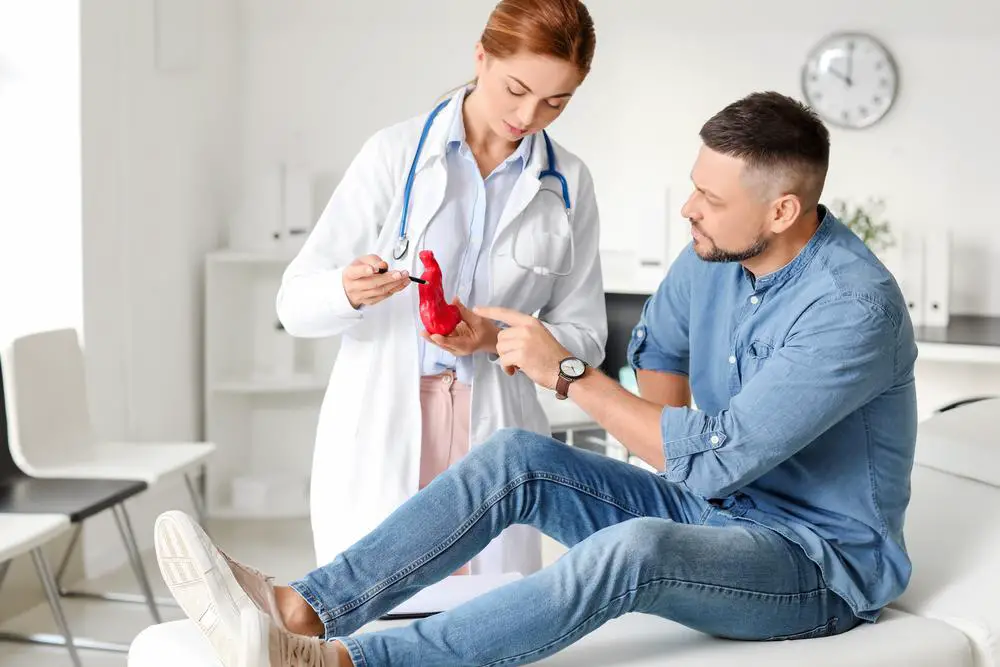As a BetterHelp affiliate, we receive compensation from BetterHelp if you purchase products or services through the links provided
In this guide, we navigate the often complex terrain of managing gastro problems. Digestive health is a critical yet frequently overlooked aspect of overall well-being. We all experience digestive discomfort occasionally, but consistent symptoms may indicate an underlying gastro problem. This document aims to provide practical, easy-to-follow steps to help you manage these problems effectively and enhance your quality of life.
Identifying the Issue
Understanding the root cause of your digestive discomfort is the first step towards managing gastro problems. Pay close attention to the symptoms you experience and note their frequency and severity. Is it a stomach ache or something more persistent like heartburn or bloating? Once you have a clear picture of your symptoms, it becomes easier to seek medical advice.
Consulting a healthcare professional is crucial before starting any treatment or management plan. They can accurately diagnose your condition and provide bespoke advice based on your unique health profile. Regular check-ups and open communication with your gastro specialist can ensure that your treatment plan is both effective and safe. It’s also essential to be honest and transparent about your symptoms so the doctor can diagnose accurately.
Remember not to self-diagnose or self-medicate without professional advice. Doing so may exacerbate your symptoms or mask an underlying issue requiring immediate medical attention. If your symptoms persist despite lifestyle changes and home remedies, don’t hesitate to seek professional help.
 Nutritional Adjustments
Nutritional Adjustments
Your diet has a significant impact on your gut health. Consuming balanced meals rich in fiber can aid digestion and prevent constipation while avoiding trigger foods can minimize discomfort and flare-ups. Staying hydrated is also essential, as water aids digestion and helps prevent constipation.
Consuming probiotics through supplements or fermented foods can contribute to a healthy gut. These microorganisms help balance your gut flora, ultimately improving your digestion. However, you must consult your healthcare provider before adding supplements to your diet.
Lastly, try to eat mindfully and pay attention to portion sizes. Overeating can overwhelm your digestive system and lead to discomfort. Eating slowly and savoring your food can help your stomach process food more efficiently and improve your overall digestion.
Regular Exercise
Physical activity is often lauded for its numerous cardiovascular and mental health benefits, but it’s also beneficial for digestive health. Regular exercise stimulates the muscles in your digestive tract, which helps keep food moving through your system and can alleviate symptoms of constipation and bloating.
However, tailoring your exercise regime to your capabilities and preferences is essential. Overexertion can lead to more harm than good, so listening to your body is crucial. Whether it’s a brisk walk, yoga, or a high-intensity workout, find a routine that suits you and commit to it.
Remember, consistency is vital when it comes to exercise. Even a short, daily walk can significantly benefit your digestive health. However, always consult your healthcare provider before starting any new exercise regime, particularly if you have an underlying health condition.
Adequate Rest
Rest is as important as diet and exercise in managing gastro problems. Your body needs time to heal and regenerate, including your digestive system. Get a good night’s sleep and take time out of your day to relax and de-stress.
Reducing stress is another crucial aspect of managing your gastro health. Chronic stress can harm your digestive system, leading to problems like heartburn and stomach ulcers. Consider incorporating stress management techniques like mindfulness, meditation, or deep-breathing exercises into your daily routine.
Lastly, listen to your body. If you’re feeling unwell or overly fatigued, take the time to rest and recuperate. Pushing through the discomfort can cause more harm than good and may lead to further complications.
Medical Treatment
While lifestyle modifications can significantly improve your gastro health, there may be instances where medical treatment is necessary. This could involve medication to alleviate symptoms, long-term treatment for chronic conditions, or even surgery for severe cases.
If you’re prescribed medication, ensure that you take it as directed by your healthcare provider. Misuse of medication can lead to complications and may worsen your condition. If you have any concerns about your medicine, don’t hesitate to discuss them with your doctor.
In some cases, surgery may be necessary to treat severe gastro problems. While this can seem daunting, remember that your healthcare provider will only recommend this route if they believe it’s in your best interest. It’s important to discuss all your options with your doctor and make an informed decision.
In conclusion, managing gastro problems requires a comprehensive approach that involves identifying the root cause of your symptoms, making nutritional adjustments, including regular exercise and adequate rest, and seeking medical treatment when necessary. By following these practical steps, you can effectively manage your gastro issues and improve your overall well-being. Remember to always consult with your healthcare provider before making any significant lifestyle changes.
- 3 Ways Wearing a Hat Can Help Lower Your Stress Levels - April 19, 2025
- Breaking the Silence: Why Men’s Mental Health Matters More Than Ever - April 15, 2025
- How to Transform a Home’s Patio Space into a Relaxing Space - March 23, 2025
This site contains affiliate links to products. We will receive a commission for purchases made through these links.


 Nutritional Adjustments
Nutritional Adjustments
